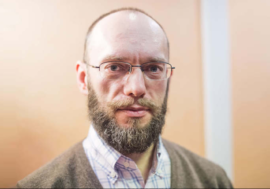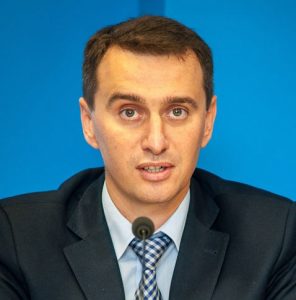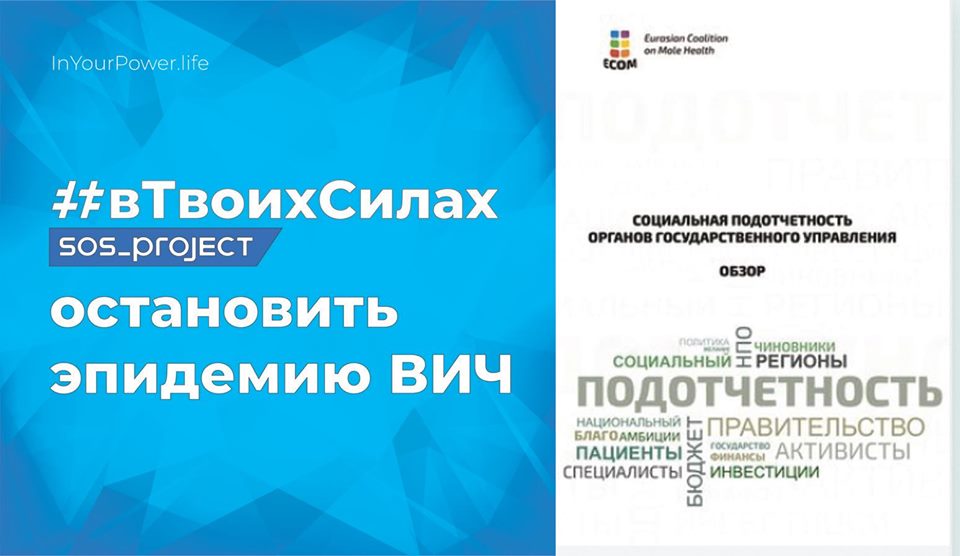In countries of Eastern Europe and Central Asia, as well as the Balkan region, the transition from international support to state funding of HIV/AIDS programs, formed in recent years with the support of international donors, is undergoing various stages: somewhere it has just begun, and somewhere there are already results.
Therefore, some of the most pressing issues today are: how to activate the state to effectively implement priority measures and allocate sufficient funding to overcome the HIV/AIDS epidemic; to prioritize this issue on the public health agenda of each country in the region with more than 2 million people living with HIV?
Alliance for Public Health, Eurasian Coalition on Male Health and the CO “100% Life” shared their expertise and experience in a comprehensive response to challenges and held a regional online seminar (webinar) on “Developing a dialogue between the state and civil society”.
The webinar, which is available in the recording (webinar in russian), presents discussions and presentations on the following topics:
– Inna Gavrylova, coordinator of the information campaign and communications manager of #SoS_project in Alliance for Public Health, spoke about the launch of a new regional initiative – the information campaign #InYourPower, the launch of which is scheduled for October 2. Listen to the presentation.
 “We faced the task of creating a motivating public background for a more effective dialogue between civil society and government bodies, to inspire and encourage officials to make appropriate decisions in favor of ensuring the sustainability of HIV services and saving lives of more than 2 million people living with HIV in the region. In the process of the campaign development, we studied the trends, lessons and impact of information campaigns in the region over the past 5 years. We had everything in these six months: heated discussions in the team, we conducted in-depth interviews, discussions with officials, communications with experts and political scientists, representatives of communities from different countries, and in this campaign, we formed the most simple and understandable communication “it’s in your power to stop the HIV epidemic. We will work to ensure better visibility of successful and efficient work of such cooperation in the EECA countries and the Balkan region, ” said Inna Gavrylova.
“We faced the task of creating a motivating public background for a more effective dialogue between civil society and government bodies, to inspire and encourage officials to make appropriate decisions in favor of ensuring the sustainability of HIV services and saving lives of more than 2 million people living with HIV in the region. In the process of the campaign development, we studied the trends, lessons and impact of information campaigns in the region over the past 5 years. We had everything in these six months: heated discussions in the team, we conducted in-depth interviews, discussions with officials, communications with experts and political scientists, representatives of communities from different countries, and in this campaign, we formed the most simple and understandable communication “it’s in your power to stop the HIV epidemic. We will work to ensure better visibility of successful and efficient work of such cooperation in the EECA countries and the Balkan region, ” said Inna Gavrylova.
Campaign initiators: Alliance for Public Health and CO “100% Life”, with information support from the UNAIDS EECA and financial support from Global Fund to Fight AIDS, Tuberculosis and Malaria, #SoS_project.
 – How to work with officials? What is the internal motivation of government officials?
– How to work with officials? What is the internal motivation of government officials?
The presentation on the materials of the new ECOM review was presented by Gennady Roshchupkin, coordinator for the development of ECOM community systems, and Natalia Podogova, an expert in building relations with state authorities from EHRA. Listen to the presentation (16:25 min).
 “Social accountability is a mechanism of interaction between government bodies and civil society, it is a movement towards each other, which helps the state system to respond in a timely and efficient manner to both problems and challenges, as well as emerging opportunities,” said Natalia Podogova. – “Studying the motivation of government officials and politicians to be open and interact with civil society can help attract them to the category of partners and allies, and existing partnerships can be developed and strengthened. You can read about all this in the review prepared by ECOM, and in the preparation of which I was able to participate”.
“Social accountability is a mechanism of interaction between government bodies and civil society, it is a movement towards each other, which helps the state system to respond in a timely and efficient manner to both problems and challenges, as well as emerging opportunities,” said Natalia Podogova. – “Studying the motivation of government officials and politicians to be open and interact with civil society can help attract them to the category of partners and allies, and existing partnerships can be developed and strengthened. You can read about all this in the review prepared by ECOM, and in the preparation of which I was able to participate”.
– Experience in building cooperation from the position of an official
This topic was presented by Victor Lyashko, an expert in GR and state financial management, who in 2017-2019 held the position of first deputy general director of the public institution Center for Public Health of Ukraine. Listen to the presentation (49 min).
 “How to activate the state to effectively implement priority measures to overcome the HIV / AIDS epidemic is a very complex issue. It is especially difficult in the context of parallel reforms, when there is a political struggle for limited resources. And in these conditions, we need not only to ensure a gradual transition from donor funds, mainly from the Global Fund, to financing from state and local budgets, but also to prevent the cessation of such activities or the deterioration in the quality of their implementation,” – noted Victor Lyashko.
“How to activate the state to effectively implement priority measures to overcome the HIV / AIDS epidemic is a very complex issue. It is especially difficult in the context of parallel reforms, when there is a political struggle for limited resources. And in these conditions, we need not only to ensure a gradual transition from donor funds, mainly from the Global Fund, to financing from state and local budgets, but also to prevent the cessation of such activities or the deterioration in the quality of their implementation,” – noted Victor Lyashko.
We must understand that the results of changes, like any other reforms, will not be visible tomorrow — the epidemic cannot be stopped in a year or two. And even if countries manage to switch to state funding, they need to immediately think and take steps to ensure the stability of this transition. Since after several months of work in the new conditions, there will be populists who will scream at all angles about the inefficiency of using budget money. Therefore, for all of us, the priority should be the issue of optimization and rational use of existing resources that are allocated by the state to overcome the HIV / AIDS epidemic. For example, optimization of treatment regimens, advocacy work with manufacturers to lower prices, rational review of packages of services that will be financed from the state budget. And it is advisable to always discuss answers to questions of rational use of budget funds in extended working groups with the involvement of community representatives. Resources are always scarce, therefore, in such groups, priorities are determined and understanding comes about how state budgets are formed. Another plus of the expanded groups is the involvement of officials at various levels. This, given the short period of political life of officials, will allow us to constantly have partners in the ministries who will be worried about the HIV response. ”

